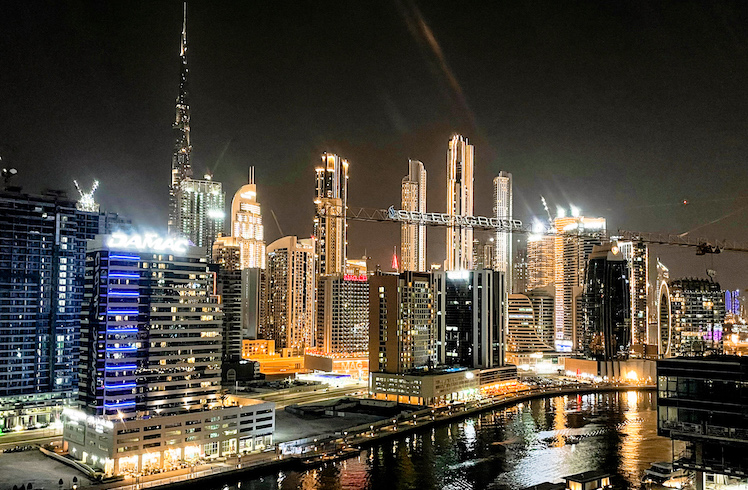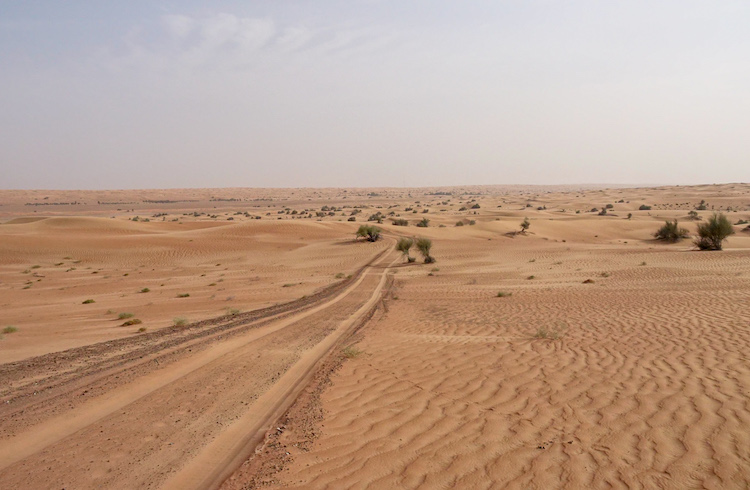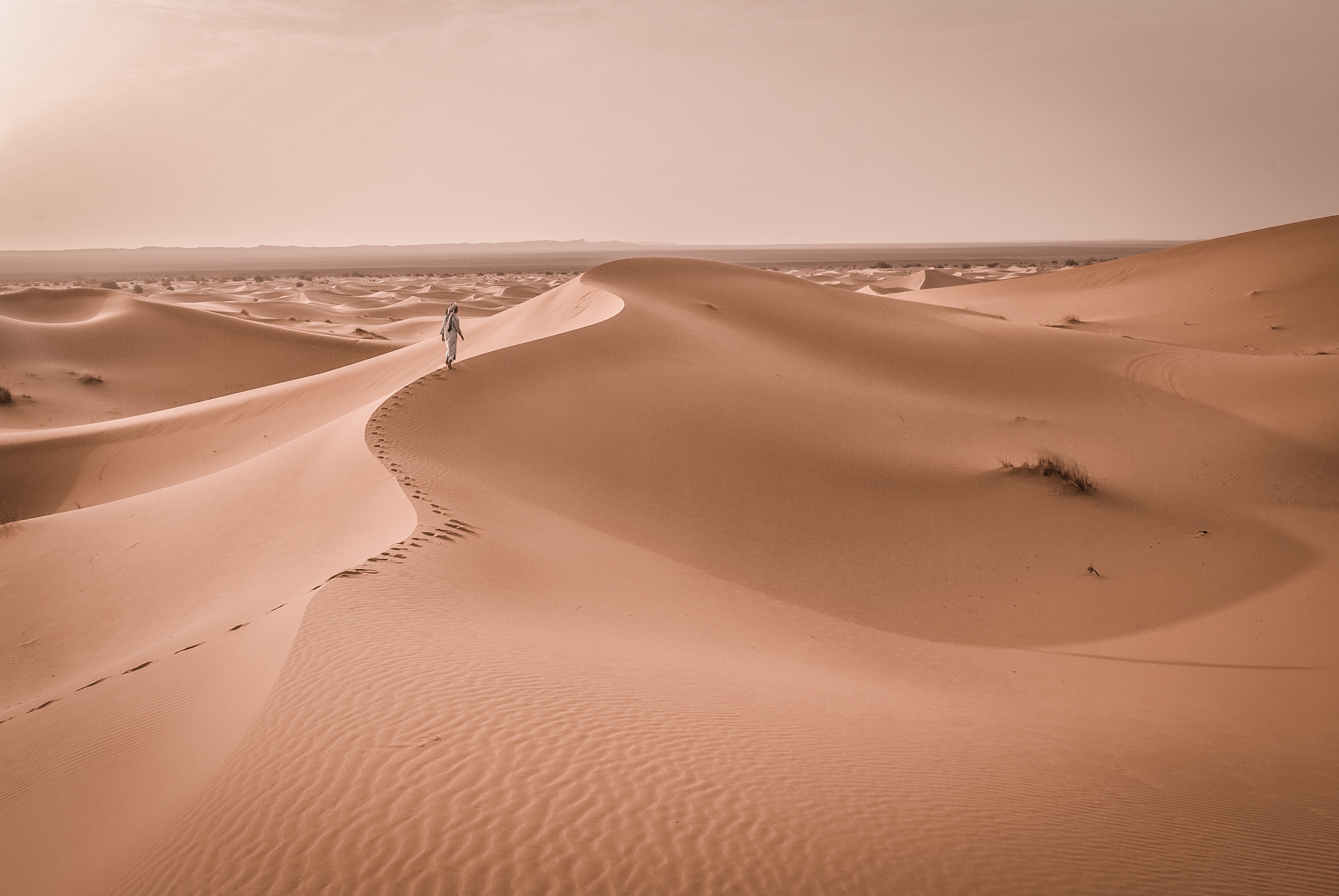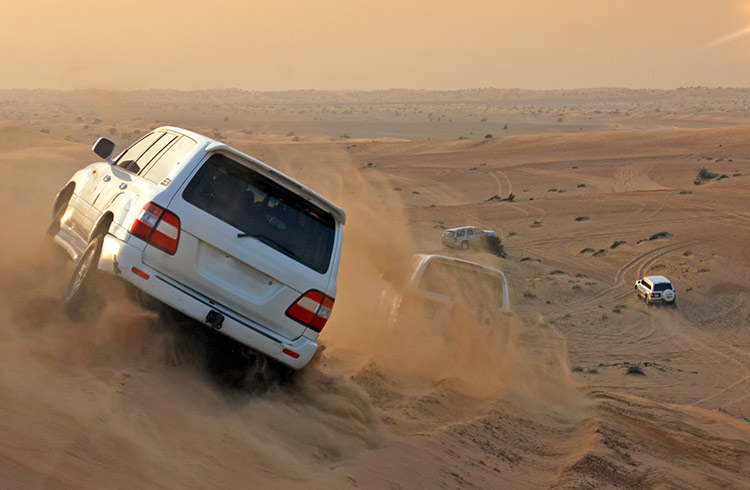Is Dubai Safe? Essential Travel Safety Tips for Visitors
The emirate's strict laws make Dubai almost crime-free, but there are other safety concerns.
 Photo © Alicia Erickson
Photo © Alicia Erickson
Dubai is a remarkably international city with one of the lowest crime rates in the world. Petty incidents such as pickpocketing are rare and violent crimes are more or less non-existent. On a recent visit, I never felt uneasy in crowded places or when I was out at night and traveled without worry for my personal safety or my belongings. Personal safety in Dubai is largely attributed to strict laws and a general obedience to the rigorous government.
While Dubai is, in general, less strict than the other Emirates, still be wary of a few sensitive topics, from alcohol laws to LGBTQ+ laws. And despite Dubai’s reputation as a safe and crime-free place for travelers, there are still some factors to consider when visiting both the city and the emirate of Dubai, including precautions when it comes extreme heat and desert excursions.
Women’s safety
Generally, Dubai is a very safe destination for women travelers, solo or in a group. English is widely spoken, public transportation is abundant, and there are free WiFi zones located across the city. Personal safety in Dubai is among the highest in the world, with 98.5% of women saying they felt safe walking alone in their neighborhoods at night in the UAE in the 2021 Women, Peace and Security Index’s community safety survey.
Women’s safety is partly a result of the strict local culture. That being said, I did have a number of unwelcome encounters in bars and clubs in Dubai and Abu Dhabi when I was followed around and harassed. I never experienced anything like this on the streets, though.
When it comes to clothes, Dubai is less strict than other emirates, such as more traditional Sharjah, the third largest emirate, where it is advisable to dress conservatively. Due to the large number of Europeans in Dubai, it is relatively acceptable to wear shorts or a short dress in the more westernized establishments. The time of the year when you should be particularly careful about what you dress, however, is during the month of Ramadan, when observances of the Islamic holiday are in place. While this doesn’t require foreign women to cover their heads, it is recommended to dress more modestly, such as wearing pants, a long dress, and modest shirts.

LGBTQ+ safety
Although Dubai has a cosmopolitan front with its flashy hotels and upscale restaurants, that doesn’t mean it is progressive in every way. The United Arab Emirates has some of the strictest laws surrounding LGBTQ+ rights and Dubai is no exception. Every type of same-sex act is illegal and punishable by severe measures, including fines, deportation, and imprisonment. While the most extreme consequences are typically applicable to Muslims, it is important to be aware of these laws and be cautious about not engaging in same-sex public displays of affection. This rule applies for heterosexual couples as well, for that matter, as all public displays of affection – including holding hands – is illegal and should be avoided.
Avoiding heat stroke
Heat is a significant consideration when visiting Dubai. During a large part of the year, temperatures climb to more than 100°F (40°C). June through September are the hottest months, with the peak heat hitting in August. You’ll need to to come prepared for these temperatures if you plan to be outside. Much of the city’s population spends its time inside air-conditioned restaurants and malls during these months to avoid the heat. If you plan to go outside, wear lightweight clothing and stay hydrated. You’ll want to think carefully before planning any outdoor adventures during these hot months. Luckily, there is no shortage of swimming pools at hotels throughout Dubai if you’re hoping to get some sun while staying cool.
While there’s a belief that Dubai is excessively hot year-round, this desert city does experience a few months’ reprieve. November through February have cooler, more pleasant temperatures. January is the coolest month with highs in the mid-70s (low-20s C) and lows in the low-mid 60s (15-18°C). These months are ideal for hiking, camping, and other outdoor excursions.
Desert safety in Dubai
Accessing the desert on your own as a first-time visitor is not recommended unless you’re an experienced outdoor adventurer. There are plenty of types of four-wheel drive desert safaris you can book with a local guide, or you can choose to pay a visit to the Dubai Desert Conservation Reserve.
The desert can reach even more extreme temperatures than the city, so it’s important to pack appropriately. Wear lightweight, loose-fitting clothing that keeps you covered from the sun. Use sunscreen and bring sufficient water. If you do choose to embark on a solo desert excursion, know that you’ll be in wide swaths of sand with minimal to no infrastructure and intermittent phone service. Always bring more than enough water and food, hydration tablets, a spare tire, and appropriate camping gear if you’re staying overnight. While there are no large predators in the Dubai desert, be aware of venomous critters such as vipers, scorpions, and spider species endemic on the Arabian Peninsula.

Driving in Dubai
One of the most exciting parts about exploring a new place is the freedom to drive through unknown territory. Non-residents can drive in Dubai with an international driver’s license and you can rent a car if you are over 21.
Dubai is a very busy city with massive highways that can be daunting at first. Maneuvering the multi-lane highways is initially intimidating, there are helpful traffic signs in both Arabic and English. The left lane is the fastest and should be avoided if you’re not comfortable contending with aggressive drivers. Be aware of speed limits and traffic rules to avoid traffic fines.
While there is a certain thrill to off-roading on sand dunes, ensure that if you head off for a sand bashing adventure, you’re equipped with spare tires and a car with four-wheel drive.
Related articles
Simple and flexible travel insurance
You can buy at home or while traveling, and claim online from anywhere in the world. With 150+ adventure activities covered and 24/7 emergency assistance.
Get a quote

No Comments